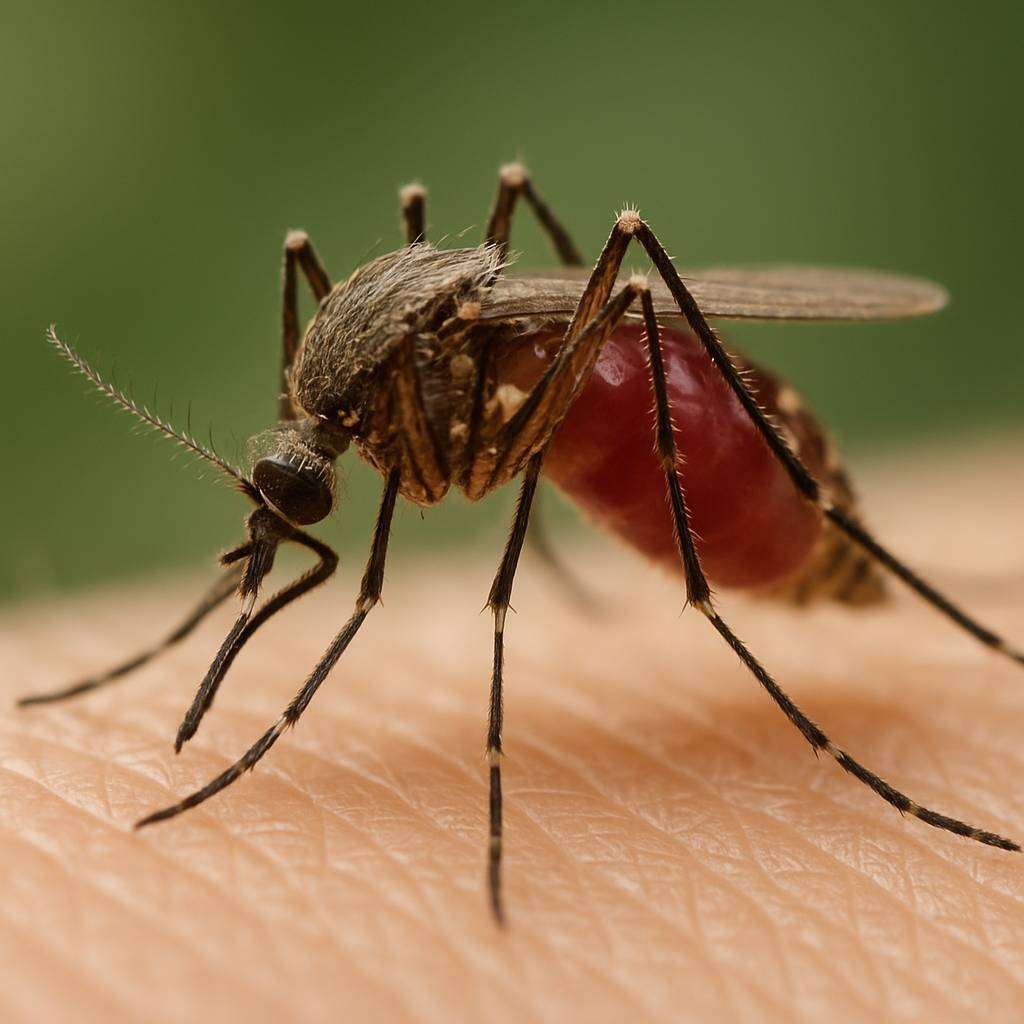Climate Change Expands the Reach of Insect-Borne Tropical Diseases
Climate change is rapidly altering the risk landscape for infectious diseases. The UK is now confronted with threats that once seemed far removed, especially diseases spread by insects like mosquitoes. Higher average temperatures and unpredictable rainfall create ideal breeding grounds for mosquito populations. As a result, these insects, and the diseases they carry, are moving into regions where they previously could not survive.
Mosquito-borne illnesses such as West Nile virus, dengue fever, chikungunya, and zika have historically been limited to tropical and subtropical areas. However, climate warming has made parts of northern and western Europe increasingly hospitable to these vectors. In 2024, France and Italy reported hundreds of locally acquired cases of West Nile virus and dengue. The UK is now observing similar patterns, with the first detection of West Nile virus in native mosquitoes.
This development signals a profound shift in public health risks. Diseases once thought exotic could soon become part of the UK’s epidemiological reality. Public health agencies now face the urgent task of adapting to a landscape where insect-borne illnesses are not only possible but probable.
The UK’s First Mosquito-Borne Virus Detection: A Wake-Up Call
The discovery of West Nile virus in UK mosquito populations marks a crucial turning point. The UK Health Security Agency (UKHSA) recently confirmed the presence of the virus in mosquitoes found in southern England. While there is no evidence yet of transmission to humans, the event demonstrates that the necessary conditions for mosquito-borne diseases are already present in the UK.
West Nile virus is transmitted primarily by Culex mosquitoes. Most infections cause mild symptoms, but severe cases can lead to neurological complications or death. The virus has caused significant outbreaks in the United States and southern Europe over the past two decades. Its arrival in the UK gives public health experts a narrow window to act before local outbreaks occur.
The UKHSA has stated that the current risk to the public remains low. However, surveillance systems must be strengthened to detect potential cases in humans quickly. Without prompt action, the UK could face outbreaks similar to those seen in other temperate countries as climates warm.
Global Heating and Shifting Vector Habitats
Rising global temperatures have a direct impact on disease vectors like mosquitoes. Warmer climates shorten the development cycles of mosquitoes and increase their reproductive rates. This gives rise to larger insect populations and more opportunities for disease transmission.
Climate models show that the UK is becoming increasingly suitable for mosquitoes that carry tropical diseases. Hotter summers, milder winters, and increased rainfall create the standing water and warm conditions mosquitoes need to breed. The result is a northward shift in the range of species such as Aedes and Culex, both known vectors for significant human diseases.
This phenomenon is not limited to the UK. Across Europe, regions that were previously inhospitable to mosquito populations are now experiencing outbreaks. The spread of West Nile virus and dengue into France, Italy, and Germany in recent years demonstrates this trend. The UK is now following the same trajectory, highlighting the urgent need for climate adaptation strategies in public health.
The Role of International Aid in Disease Control
International aid plays a critical role in global disease surveillance and control. Many tropical diseases are endemic in low- and middle-income countries, where resources for mosquito control and medical treatment are limited. Aid from countries like the UK has historically funded vital programs for disease monitoring, vector control, and emergency response.
Recent government cuts to international aid threaten to unravel years of progress in controlling insect-borne diseases. Mosquito experts warn that the collapse of surveillance and treatment programs in endemic regions will allow diseases to spread unchecked. This not only endangers local populations but also increases the risk of pathogens crossing borders into Europe and the UK.
The COVID-19 pandemic has shown how quickly diseases can spread globally. Insect-borne diseases are no different. Weakening global health infrastructure through funding cuts undermines efforts to contain outbreaks at their source, making it harder to prevent their arrival in the UK.
Surveillance and Early Warning Systems: What’s at Stake?
Effective disease surveillance is the cornerstone of outbreak prevention. Early detection of new vectors and pathogens allows for rapid response, containment, and treatment. In the context of climate change, expanding surveillance is more important than ever.
Surveillance systems track mosquito populations, monitor virus circulation, and detect human cases. In the UK, these programs are relatively new and under-resourced compared to tropical countries. Cuts to international surveillance funding mean that warning signs of disease emergence may go unnoticed until outbreaks are well underway.
The loss of expertise and data from endemic countries limits the UK’s ability to predict which diseases are most likely to arrive. Investment in both domestic and international surveillance infrastructure is essential to protect public health. Without it, the UK will remain vulnerable to emerging threats driven by a changing climate.
Public Health Readiness: Challenges and Gaps
The UK’s public health system is not fully prepared for the complexities of insect-borne tropical diseases. These illnesses often present with non-specific symptoms and can be difficult to diagnose without specialist expertise. Laboratories and healthcare providers need training and resources to identify and manage new diseases as they emerge.
Vector control is another critical challenge. Traditional methods, such as insecticide spraying and elimination of standing water, may not be sufficient as mosquito populations adapt to urban environments. The UK’s dense cities and mild climate create unique challenges for effective mosquito management.
Public education is crucial to raise awareness about personal protection measures, such as using repellents and installing window screens. Authorities must also consider the social and economic impacts of outbreaks, including pressure on healthcare systems and the risk to vulnerable populations.
The Risk of Complacency: Lessons from Europe and Beyond
Complacency is a serious risk when dealing with emerging diseases. In southern Europe, authorities initially underestimated the ability of tropical diseases to establish in temperate zones. As a result, outbreaks of West Nile virus and dengue were more severe and harder to control.
The UK has an opportunity to learn from these experiences. Proactive investment in surveillance, vector control, and public education can prevent the worst outcomes. Waiting for a major outbreak before taking action will only increase costs and casualties.
Climate change continues to accelerate the spread of insect-borne diseases. The UK must act now to build resilience and avoid repeating the mistakes of its European neighbors.
The Interconnectedness of Climate, Health, and Policy
Climate change, public health, and policy decisions are deeply interconnected. The spread of insect-borne tropical diseases in the UK is not only a scientific issue but also a matter of political will and resource allocation. Government decisions on international aid, domestic preparedness, and climate adaptation will shape the trajectory of disease risk for years to come.
International cooperation remains essential. No country can tackle the threat of insect-borne diseases alone. Sharing data, expertise, and resources increases the chances of early detection and effective response.
At the same time, climate action is the most powerful long-term tool. Reducing greenhouse gas emissions can help limit further warming and slow the expansion of disease vectors. Every degree of warming averted is likely to reduce the risk of new diseases arriving in the UK and Europe.
What Can Individuals and Communities Do?
Individuals can also play a role in reducing the risk of insect-borne diseases. Preventive measures such as eliminating standing water around homes, using insect repellents, and fitting windows with screens can limit mosquito breeding and bites. Staying informed about travel advisories and emerging disease threats is equally important.
Communities can support local authorities in mosquito control efforts, participate in public health campaigns, and advocate for climate action at all levels. Engaged citizens are vital partners in the collective effort to protect public health in a changing climate.
Looking Ahead: Building a Climate-Resilient Health System
The emergence of insect-borne tropical diseases in the UK is a clear warning. Climate change is not only an environmental problem but a growing public health emergency. The UK must invest in resilient health infrastructure, maintain strong international partnerships, and prioritize both mitigation and adaptation.
Science, policy, and public engagement must work together to meet these new challenges. By acting now, the UK can protect itself from the next wave of climate-driven diseases and set an example for other nations facing similar threats.
Sources
- https://www.theguardian.com/environment/2024/jun/10/climate-change-insect-borne-tropical-diseases-uk-west-nile-virus
- https://www.gov.uk/government/news/uk-health-security-agency-discovers-west-nile-virus-in-mosquitoes-in-uk
- https://www.ecdc.europa.eu/en/news-events/west-nile-virus-season-2024
- https://www.who.int/news-room/fact-sheets/detail/vector-borne-diseases
- https://www.nature.com/articles/d41586-022-01890-5



